Médico Veterinario Zootecnista, egresado de la Universidad Cooperativa de Colombia (UCC) en el año 2006, con maestría en la Universidade Estadual do Norte Fluminence (UENF), estado de Rio de Janeiro, Brasil, y doctorado en la Universidade Federal do Pará (UFPA), estado de Pará, Brasil.
Sus áreas de academia e investigación son enfocadas en la Fisiología y Biotecnologías de la reproducción aplicadas a las especies de interés zootécnico. Ha participado en el diseño, montaje, puesta a punto y andamiento de laboratorios de biotecnología de la reproducción dedicados a la producción in vivo e in vitro de embriones y cropreservación de semen con propósitos tanto comerciales como académicos y de investigación. De igual manera, ha participado del diseño y trabaja activamente en programas de manejo reproductivo en producciones pecuarias dedicadas a la cría de bovinos, ovino-caprinos y búfalos.
Se desempeña en las disciplinas de Biotecnologías de la Reproducción, Fisiología de la Reproducción Animal y Teriogenología. Desde el quehacer como investigador estudia los mecanismos que intervienen en la maduración ovocitária, así como los factores que afectan la competencia de los complejos cúmulus-ovocitos y la caracterización del metabolismo de ovocitos y embriones cultivados en condiciones in vivo e in vitro, todo esto con el objetivo de aumentar la eficiencia de las técnicas embrionarias aplicadas a las especies productivas.

